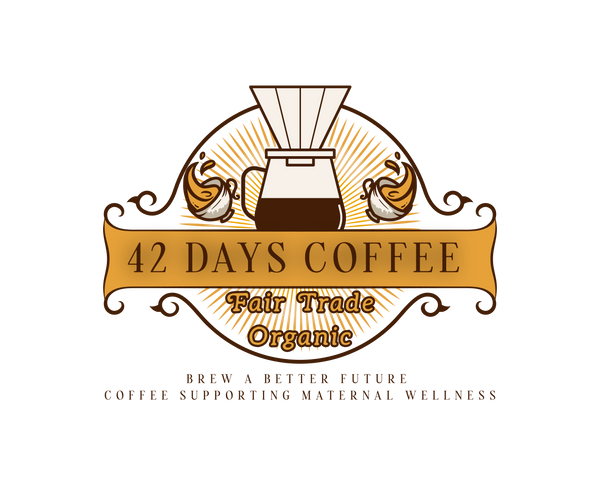
Discover the Health Benefits of Organic Coffee: Why Your Brew Choice Matters
Share
If you’re a coffee lover who cares about health and the environment, you’ve probably wondered about the benefits of organic coffee. From its distinct taste to its eco-friendly impact, organic coffee offers unique advantages that go beyond the usual morning buzz. In this post, we’ll dive into what makes organic coffee so special, how it differs from regular commodity coffee, and why it might be worth the extra few dollars in your shopping cart.
Let’s break it down into the health perks, taste differences, and environmental effects – and finish up with answers to common questions about organic coffee. Ready to sip into something better?
Health Benefits of Organic Coffee: Cleaner, Purer, and Packed with Antioxidants
Organic coffee is grown without synthetic pesticides, herbicides, or chemical fertilizers. This makes it a cleaner option, with fewer chemical residues ending up in your cup. Organic coffee is also rich in antioxidants, like chlorogenic acid, which is known to reduce inflammation and protect cells from damage. These antioxidants remain potent throughout the roasting process, delivering benefits like:
- Improved digestion: Organic coffee is less likely to cause acid reflux or digestive irritation.
- Enhanced immune function: Antioxidants in organic coffee help protect cells and support immunity.
- Reduced inflammation: Regular consumption of antioxidant-rich coffee can contribute to a lower risk of chronic diseases.
Specialty Organic Coffee vs. Commodity Coffee: Quality Over Quantity
There’s a big difference between specialty organic coffee and commodity coffee. Specialty organic coffee is grown under strict conditions that emphasize quality, flavor, and sustainability. Commodity coffee, on the other hand, is typically mass-produced, with a focus on quantity rather than quality.
| Feature | Specialty Organic Coffee | Commodity Coffee |
|---|---|---|
| Growing Conditions | Shade-grown, handpicked | Mass-produced |
| Pesticides/Fertilizers | Free from synthetic chemicals | Often uses chemicals |
| Flavor Profile | Distinct, vibrant, nuanced | Standard, sometimes bland |
| Price | Higher, reflective of quality | Lower, reflects quantity focus |
Specialty organic coffee often features unique flavors, thanks to the care and precision in its cultivation. The result? A smoother, richer taste with subtle notes that vary by region, making each cup a journey of flavors.
Taste Comparison
- Specialty Organic Coffee: Known for vibrant, layered notes, such as floral, fruity, or nutty flavors. High-altitude, shade-grown beans tend to have a more complex taste.
- Commodity Coffee: Often tastes flat or overly bitter due to quick, large-scale production, which can diminish natural flavors.
Environmental Benefits of Organic Coffee: Growing with Care for the Planet
Organic coffee farms use eco-friendly methods to protect the soil, preserve biodiversity, and reduce pollution. Here’s how organic coffee benefits the environment:
- No Harmful Pesticides: Organic farms don’t use synthetic pesticides, which protects nearby water sources and local wildlife.
- Healthier Soil: Organic farming practices support soil health, reducing the risk of soil erosion and nutrient depletion.
- Biodiversity Preservation: Many organic farms grow coffee under a canopy of trees, maintaining habitats for birds, insects, and other animals.
The environmental difference is particularly notable in comparison to conventional coffee farms, which often rely on chemical inputs that can degrade soil quality and harm wildlife. Choosing organic coffee is a small step towards a more sustainable planet.
Environmental Impact of Organic vs. Commodity Coffee
Let’s visualize the environmental impact:
| Environmental Factor | Organic Coffee | Commodity Coffee |
|---|---|---|
| Pesticide Use | None | High |
| Soil Health | Healthy | Degrading |
| Water Pollution | Minimal | Significant |
| Wildlife Preservation | High | Low |
This chart shows that organic coffee has a far more positive environmental impact than commodity coffee, contributing to healthier ecosystems.
Let’s tackle some common questions about organic coffee:
-
Is organic coffee really worth the higher price?
Yes, if you value health benefits, taste, and sustainability. Organic coffee offers a cleaner cup with a richer flavor profile and fewer environmental downsides. -
Does organic coffee taste different than regular coffee?
Absolutely! Organic coffee, especially specialty organic coffee, tends to have a brighter, more vibrant taste, often with unique flavor notes that reflect the region where it’s grown. -
What does Fair Trade have to do with organic coffee?
Many organic coffees are also Fair Trade certified, which means they support fair wages and ethical labor practices for farmers. By choosing organic, Fair Trade coffee, you’re supporting a coffee industry that values people and the planet.
Ready to Try Organic Coffee?
Choosing organic coffee is more than just a choice for your health – it’s a commitment to quality, flavor, and environmental sustainability. So why not start exploring the world of organic coffee today? With 42 Days Coffee, you’ll experience organic, specialty-grade beans crafted with care for you and the environment.

